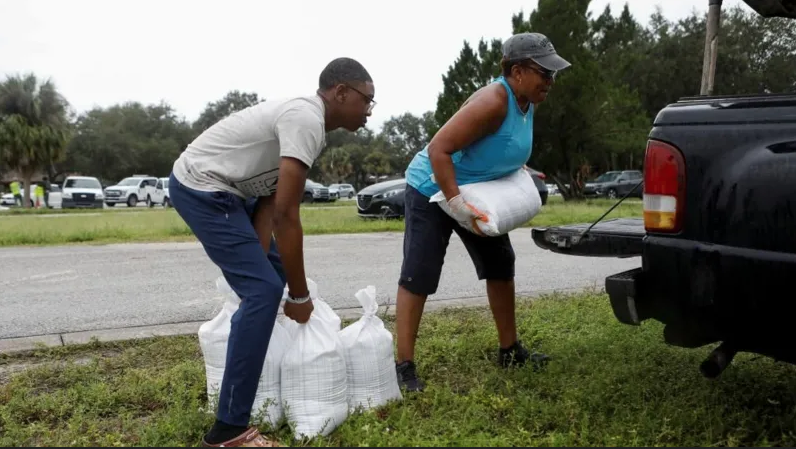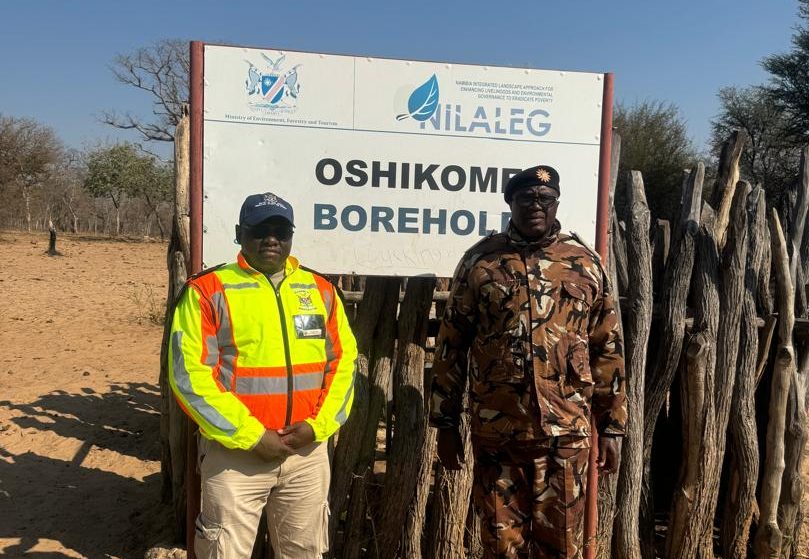Anti-poaching units fingered in wildlife poaching
Written by on July 8, 2024
Members of anti-poaching units are sometimes involved in poaching or trafficking themselves, a latest report shows.
This is according to a protection and law-enforcement report released by the Ministry of Environment, Forestry and Tourism last week.
Moreover, the report says 83 people have been arrested in connection with poaching and conspiring to poach rhinos and committing other wildlife crimes last year.
It states that 39 people were arrested after pre-emptive investigations in 2023, while follow-up investigations related to rhino poaching have led to 44 arrests.
A total of 69 rhinos were poached during this time, while 83 people were arrested in connection with rhino poaching.
There were also 19 arrests in cases related to the rare elephant’s foot plant, and 326 cases in which this plant was poached, while eight elephants were poached last year.
Some 56 people were arrested in connection with trafficking elephants from outside Namibia.
Additionally, 102 elephants tusks from elephants killed outside Namibia were seized.
More than 70 pangolins were poached during this period, while 106 people were arrested in connection with the poaching of pangolins.
“The onslaught of rhino poaching and the challenge of protecting rhinos against it, remain unrelenting – unless market demand can be significantly curtailed,” the ministry says in the report.
It suggests that law enforcement alone cannot reduce wildlife crimes.
Following pre-emptive arrests, would-be poachers did not manage to kill any rhino last year the report states.
INSIDERS ARRESTED
“Insiders regularly provide vital information to syndicates about poaching targets and wildlife-protection measures, or assist in smuggling contraband through checkpoints,” the report states.
Numerous insiders have been arrested in the country in 2023, but the ministry says training, background checks and surveillance reduce this risk.
“Arrested suspects are prosecuted on charges of conspiracy to poach rhinos, the illegal possession of firearms, illegal entry into protected areas and other transgressions,” the report states.
It shows that 654 people linked to 389 wildlife-crime cases were arrested last year and 96 wildlife-crime court cases were finalised.
The ministry says suspects continue to be arrested in “old” cases, as investigations remain ongoing in all open cases.
The report shows that vehicles used to carry out crimes are regularly forfeited to the state as part of a guilty verdict.
“The loss of an expensive vehicle represents a significant further penalty in addition to fines and prison terms and thus acts as a crucial crime deterrent,” it says.
During 2023, 51 vehicles and 69 firearms were seized.
Court cases of 200 individual suspects were concluded last year, resulting in 174 convictions.
Of these, 117 cases with 102 convictions were related to meat poaching, translating into an 87% conviction rate, while 48 cases with 42 convictions were related to high-value species.
CHALLENGES
Organised criminal activity, according to the report, is increasing in various sectors involving the country’s natural resources.
“Rhino poaching and horn trafficking clearly involves intricate criminal networks within Namibia, as well as international trafficking routes and nodes, enabled by transnational syndicates,” the report says.
Speaking at the national stakeholder forum on wildlife protection and law enforcement in Windhoek on Wednesday, prosecutor general Martha Imalwa said wildlife crime in Namibia has become of serious concern.
“It is therefore crucial and practical that we put our heads together and come up with new innovative techniques,” she said.
Imalwa highlighted the importance of collaboration among various stakeholders, such as representatives from the Office of the Prosecutor General, the judiciary, Blue Rhino Task Force, the environment ministry, the Anti-Corruption Commission and the Financial Intelligence Centre.
She mentioned special courts for these crimes as a positive development.
“The positive outcomes of the initial special courts led to their continuation in 2024. Courts have already been held at Katima Mulilo and Rundu, with ongoing sessions currently underway at Oshakati.
“Windhoek is also scheduled to host a special court focusing on wildlife crime, corruption and money laundering from August to September,” Imalwa said.
She said the Environmental Crime Unit specifically addresses environmental offences and ensures representation in courts nationwide.
The unit works alongside the Asset Forfeiture Unit to deter crime by targeting the financial gains of offenders, she said.
Ministry spokesperson Romeo Muyunda also expressed concern over poaching incidents in Namibia.
He said anti-poaching initiatives have curbed elephant poaching, while rhino horns have become a high-value target for criminal syndicates.
“The ministry acknowledges the gravity of the situation,” Muyunda said.
He said the commercialisation of poaching presents a significant challenge, adding that the main reasons for poaching are complex.
The ministry prioritises the safety of its wildlife rangers and anti-poaching units, Muyunda said.
“The consequences of failing to combat poaching are substantial. Namibia’s tourism sector is heavily reliant on its wildlife, generating a significant N$14,3 billion contribution to the gross domestic product in 2022, as per the latest Tourism Satellite Account,” he said.
He said the ministry has launched a nationwide tourist safety campaign in partnership with law enforcement, regional authorities and tourism operators.
The post Anti-poaching units fingered in wildlife poaching appeared first on The Namibian.


